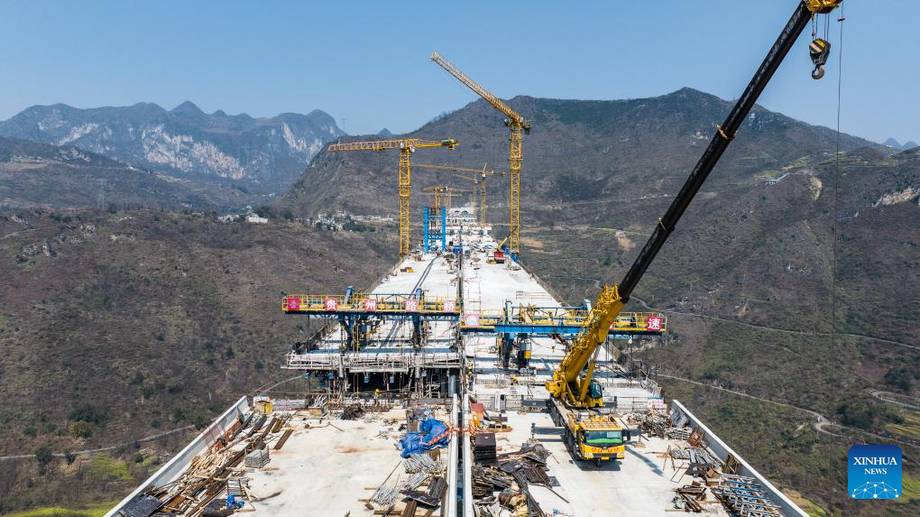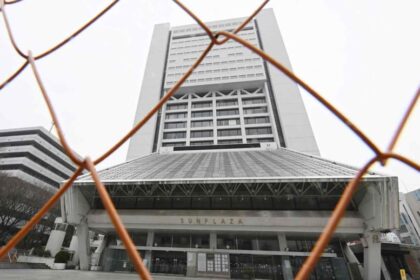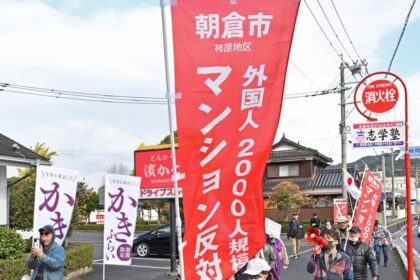A wave of disappearances unsettles Chinas boardrooms
On September 22, the chair of Great Microwave Technology, Yu Faxin, stopped appearing at work. The Shanghai listed firm, which builds advanced semiconductor parts for military uses, later disclosed that Yu had been taken away by Chinas top anticorruption watchdog. He had entered liuzhi, a secretive custody system that sits outside normal courts. His case is part of a growing pattern. Business leaders in technology, finance, property and even education have become unreachable for days or months, only to surface in official custody, under investigation, or to reappear without a clear explanation of what happened.
Vanishing executives are not new in China, but the tempo and breadth have changed. A decade ago, disappearances mostly touched party cadres and state sector bosses. Now private sector founders, dealmakers and scientists are increasingly swept in. Companies often announce that they cannot contact a chief or chair. Share prices tumble and staff scramble for direction. Investors, uncertain whether an investigation targets fraud, corruption or broader political discipline, price in new risk. The chill across boardrooms is real.
Authorities describe the effort as a clean up of corruption and financial misdeeds. Critics see a consolidation of party control over an economy that had once given private tycoons unusual latitude. Both narratives matter. Chinas leadership wants growth and innovation, yet it also seeks obedience and order. The balance between those goals is being hammered out in investigations that now reach deep into private business networks, suppliers and clients, and that can detain people for months without formal charges.
Liuzhi explained
Liuzhi, which literally means retention in custody, was created in 2018 under the National Supervision Law. It empowers the National Supervision Commission and its local arms to detain suspects in corruption or duty related cases. The scope is broad. It covers party members, civil servants, state enterprise employees, managers in public institutions and people in private firms who are deemed connected to a case. The process does not require a court order. Detainees are denied access to lawyers during the initial phase, and the location of custody is not disclosed to families. The statutory limit was extended to as long as eight months, and if new suspicions are added, the clock can restart.
Human rights groups say conditions include round the clock monitoring, constant lighting and intensive interrogation. Official summaries are sparse, often limited to a brief notice that someone is under investigation. Publicly reported totals, which include officials and businesspeople, jumped sharply in 2024, to on the order of tens of thousands of cases. The true number touching private firms is likely higher, because most companies are unlisted and have no obligation to disclose when leaders disappear.
Why an executive can be drawn in
Investigations tend to spread through business ties. If a state lender, a procurement bureau or a trust product is probed, the net can extend to suppliers, borrowers, and executives who approved deals years earlier. In a weaker economy, local officials face pressure to recover funds and show results. That can lead to aggressive tactics such as asset freezes, extended custody and mass interviews of connected managers. The risk for entrepreneurs is that even without a personal corruption accusation, they can be pulled into a related case and vanish from public view for months.
Who is being targeted
The roster spans sectors and ranks. Finance chiefs and dealmakers have been especially exposed, given the stress in capital markets and property finance. Property scions and insurers faced probes after a long credit boom turned sour. Tech founders ran into political red lines on data, competition and platform power. Executives in defense supply chains, like Yu Faxin, now sit at the intersection of sensitive technology and stringent political oversight. Each lane has its own trigger, but the outcome has often been the same: silence from the executive, a terse corporate filing, and an opaque official process.
Notable cases since 2015
- Guo Guangchang, founder of Fosun, was unreachable for several days in 2015, then returned after assisting an investigation.
- Yim Fung, chair of Guotai Junan Securities, went missing in 2015 and later resumed duties after helping authorities.
- Wu Xiaohui, who built Anbang Insurance, was detained and in 2018 received a long prison sentence for fraud and embezzlement.
- Ye Jianming, head of CEFC China Energy, vanished from view in 2018 and has been named in multiple graft cases.
- Xiao Jianhua, a financier taken from a hotel in Hong Kong in 2017, was later jailed on charges including bribery and illegal use of funds.
- Ren Zhiqiang, a real estate tycoon who criticized top leadership in 2020, was sentenced to 18 years in prison for graft.
- Bao Fan, a prominent tech dealmaker, disappeared in 2023 before his firm said he was cooperating with an investigation.
- Qu Dejun, a senior executive at Seazen, was unreachable in 2023 before resigning, with little public detail.
- Executives at streaming and gaming platforms have faced arrests and questioning, reflecting ongoing scrutiny of the internet sector.
The pattern is consistent. A sudden absence, a spike in speculation, and a thin official notice. Outcomes vary from a quick return to years in prison. The lack of clear boundaries forces executives to adjust behavior far beyond the written law.
Finance under strain, the Zhongzhi story
Chinas shadow banking ecosystem, a catchall for financing outside the formal banking balance sheet, became a flashpoint in 2023. Zhongzhi Enterprise Group, a large private financial group that controlled multiple asset managers and a trust company, warned investors its liquidity had collapsed. A related trust missed payments to individuals and corporates, sparking protests and fears of wider contagion as property developers defaulted.
In that period, several leaders at companies linked to Zhongzhi went missing. An education firm stated it could not reach its chairwoman, a veteran of the group. A livestock and dairy company in Xinjiang said it had lost contact with its chairman, who also held a senior role at the group. Corporate filings used identical language, offering no explanation beyond their inability to communicate with the executives. These incidents came days after police in Beijing announced a criminal probe into Zhongzhis wealth management unit.
The company disclosures describe the same message to investors and regulators.
Dalian My Gym Education Technology said it is unable to get in touch with its chairwoman Ma Hongying.
Beijing law enforcement also made its stance public as the probe escalated.
Beijing police said they had enforced mandatory criminal measures against a number of suspects, including one surnamed Xie.
The Zhongzhi saga captured the pressure inside finance. Trusts had poured money into property and other high yield projects during the boom. When cash flow dried up, investors demanded repayment. Police investigations and the sudden disappearance of executives signaled that authorities were willing to pursue both alleged wrongdoing and broader accountability across senior ranks.
Tech tycoons recalibrate
Technology founders felt the ground shift as platforms grew into national champions. Jack Ma, the most famous entrepreneur of the last generation, vanished from public view after he criticized financial regulators in late 2020. The initial public offering of Ant Group was halted and a long regulatory restructuring began. Over time, Ma resurfaced outside mainland China, took up teaching and agriculture projects, and in 2025 appeared at a gathering with top leaders and business heads. His journey is a guidepost for others: step back, comply with rule changes, and keep a lower profile.
Dealmakers who bankrolled the platform era also faced scrutiny. When Bao Fan, an architect of many technology mergers and listings, went missing, investors in his firm panicked and the stock dropped sharply. Private equity and venture partners now devote more time to compliance checks, data localization and political vetting alongside financial diligence. The cost of capital for certain sectors rose as risk premia expanded.
Chinas leadership has tried to signal support for private enterprise while demanding alignment with policy goals. At a key political meeting, Xi Jinping set a tone for how entrepreneurs should conduct themselves.
In a speech to delegates at the National Peoples Congress, Xi Jinping, the general secretary of the Communist Party, said private entrepreneurs should be












